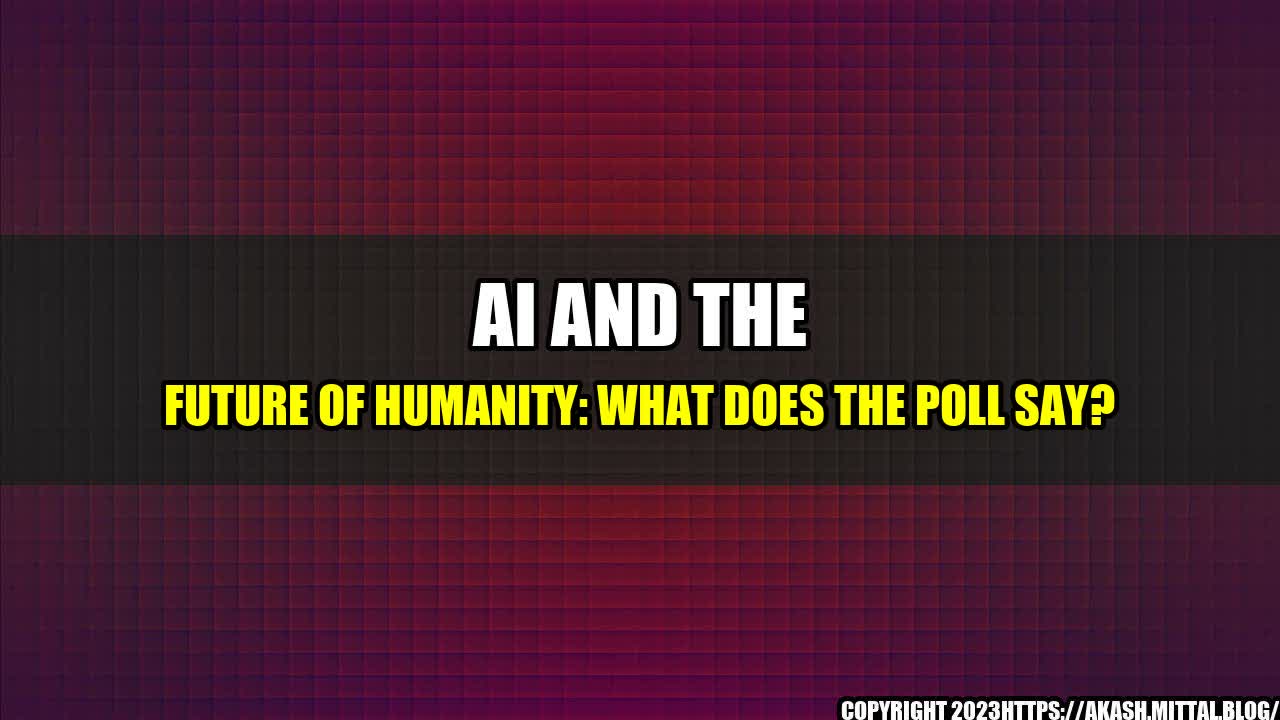John had always been fascinated by artificial intelligence. As a software developer, he understood the potential of AI to transform industries, solve complex problems, and even help save lives. He followed the latest news and discoveries with great interest, always looking for ways to incorporate AI into the projects he worked on.
One day, while browsing online, John stumbled upon a news article that caught his attention: "61% of Americans Say AI Threatens Humanity's Future". He was shocked. How could so many people be so pessimistic about AI, he wondered. Had he been blind to the dangers all along?
Deeply disturbed by this revelation, John decided to dive deeper into the issue. He read reports, studies, and expert opinions on the topic. He talked to colleagues, friends, and family members to get their perspectives. And he discovered some eye-opening facts that made him question his own assumptions about the role of AI in our collective future.
The Numbers Don't Lie
The poll that had sparked John's interest was not an isolated case. In fact, there have been several surveys and studies that show similar patterns of concern and skepticism towards AI. For example, a Pew Research Center survey conducted in 2018 found that:
- 72% of Americans expressed worry about a future where robots and computers can do many human jobs
- 67% said they were uncomfortable with the idea of robots or drones delivering goods in their communities
- 61% believed that AI and robots will displace many jobs in the near future
These numbers reveal a deep-seated anxiety about the impact of AI on society in general and the job market in particular. People worry that AI will take over jobs that are currently done by humans, leading to massive unemployment, social inequality, and economic instability. They also fear that AI systems will malfunction or be used for nefarious purposes, leading to catastrophic outcomes.
These concerns are not unfounded. There have been several instances where AI systems have caused harm or unintended consequences. For instance:
- In 2016, a self-driving Tesla car crashed into a truck, killing the passenger. The investigation revealed that the car's sensors failed to recognize the truck's trailer and thus did not apply the brakes.
- In 2018, Amazon scrapped an AI system that was used to screen job applicants because it was found to be biased against women.
- In 2019, a Chinese AI company was criticized for developing a program that can identify Uighur Muslims based on their physical appearance. The program has been used by Chinese authorities to target and detain Uighurs in Xinjiang.
These examples illustrate that AI systems can have serious flaws and biases that need to be addressed. They also highlight the ethical dilemmas that arise when AI is used to make decisions that affect people's lives.
The Way Forward
So, what can be done to address these concerns and ensure that AI is used for the benefit of humanity? Here are three key points to consider:
- Transparency: AI systems should be transparent in their operation and decision-making process. People should be able to understand how the system works and why it made a particular decision. This will help to build trust and accountability.
- Regulation: AI systems should be subject to appropriate regulation and oversight to ensure that they meet ethical and safety standards. This will help to prevent harm and ensure that AI is used responsibly. Governments, industry, and civil society should work together to develop a comprehensive framework for AI regulation.
- Human-centered design: AI systems should be designed with human values and needs in mind. This means involving diverse stakeholders in the design process, including users, experts, and impacted communities. It also means prioritizing the well-being and dignity of people over profit or efficiency.
By following these principles, we can harness the power of AI to create a better world for all. We can address the challenges and risks that come with AI while realizing its potential to solve some of the most pressing problems we face as a society.
Conclusion
The poll that John stumbled upon may paint a bleak picture of the public's perception of AI, but it also highlights the need for a nuanced and proactive approach to this complex and evolving field. We must acknowledge the risks and challenges of AI while working to unlock its potential in a responsible and ethical way. The future of humanity depends on it.

Curated by Team Akash.Mittal.Blog
Share on Twitter Share on LinkedIn